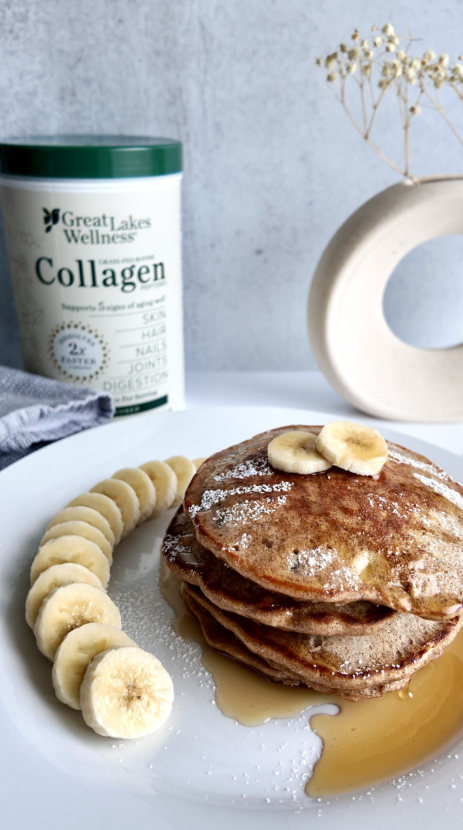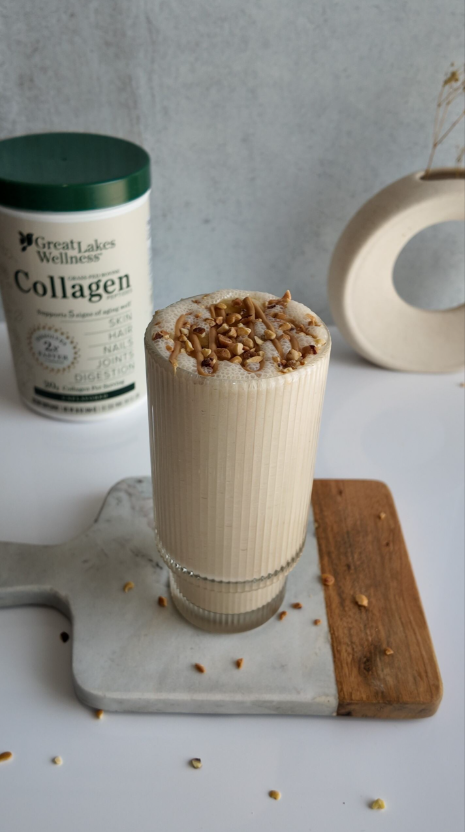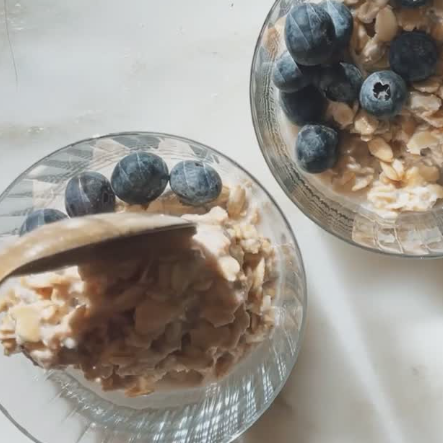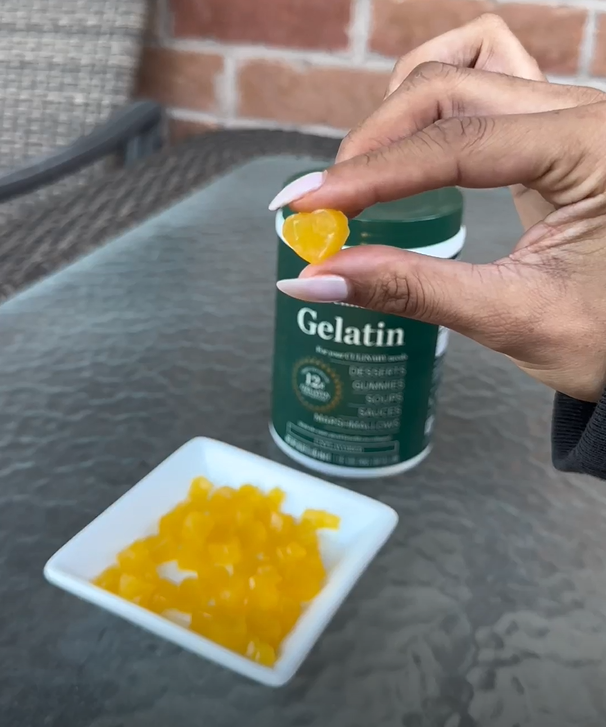Feeling sluggish? Have you ever wondered what foods may help to boost your energy? Food fuels our bodies. It’s like gas in the car; without it you aren’t going anywhere! Poor eating habits contribute to lower energy levels. Here are some strategies that you can use to get that boost!

Make sure to eat well-balanced meals. Include foods from all food groups: complex carbohydrates, lean proteins, fruits and vegetables, low fat dairy and healthy fats.
Eat every three to four hours. Eating smaller, more frequent meals may contribute to a healthy metabolism and prevent in-between meal hunger which can lead to making poor food choices and over-eating. If you are someone who prefers to eat 3 meals, make sure to time your meals throughout the day and incorporate 2 to 3 small snacks. Snacks should consist of fiber-rich carbohydrates and a protein source.
Healthy snack ideas:
- a small apple and 1-2 tablespoons of peanut butter
- a smoothie with collagen
- hummus and pita
- yogurt
- nuts

Eating more frequently throughout the day will enable you to be more focused because you are fueling your body regularly. Skipping meals will leave you tired, sluggish and less energized.
Be mindful of your feeling of hunger and feeling of fullness. When you start to feel hungry, fuel your body with healthy food choices. Stick to eating the proper portion size, today many portions are oversized. Eat enough so that you are not hungry, but not too much so that you are at the point of feeling excessively full. Eating just enough may help to curb cravings and prevent you from overeating extra calories.
Avoid foods that provide empty calories and nutrition. Stay away from drinks and foods that are full of sugar.
Empty calories to avoid:
- juices
- soda
- energy drinks
- extra sugar in your coffee or tea
- sweets
Of course, every now and then a treat is ok, but avoid them on a regular basis. These foods may make you feel good, but eventually will cause an energy crash. Make sure that what you choose to consume will provide you with proper nutrition and energy rather than just satisfying a craving.
What foods can increase energy? Below are 5 different foods that can help to BOOST your energy. When you eat, think to yourself, will this food provide any nutritional value?
Fatty Fish (salmon, tuna, mackerel, trout and sardines)
- Fatty fish are full of omega -3 fatty acids, protein, B vitamins, vitamin D, calcium, phosphorus, iron, zinc, iodine, magnesium and potassium (4,12).
- Omega 3 fatty acids reduce inflammation throughout the body which helps to prevent fatigue. Increased inflammation has been linked to fatigue (13).
- Many of the B vitamins in fatty fish help to convert food into energy. Vitamin B12 and folic acid aid in the production of red blood cells and aid in the proper functioning of iron within the body. Proper amounts of red blood cells and iron help to reduce fatigue and can boost energy (14).

Legumes (chickpeas, lentils, beans, soybeans)
- Legumes are full of low-fat protein, fiber, B vitamins (including folate), iron, potassium, magnesium and phytonutrients (4).
- Fiber helps to slow stomach emptying, which keeps you feeling fuller longer and can help to keep blood sugars controlled (3).
- The iron, folate and magnesium found in legumes aid in the production of energy in cells and help to breakdown nutrients for the release of energy (1,2).
- The folate and iron work together to promote energy, fight off fatigue and anemia (1).
- Magnesium helps to produce energy from the breakdown of carbohydrates and protein (1).
Nuts (Raw Almonds, Walnuts, Cashews, Pistachios)
- Nuts are a great source of fiber and provide a varied amount of essential nutrients; B vitamins (including folate), vitamin E, calcium, iron, zinc, potassium, magnesium, selenium, manganese and copper. Many nuts contain omega 3 fatty acids as well (4).
- Nuts are known to be high in calories, fat (mainly healthy fat), carbohydrates, fiber and protein which can provide you with extended release of energy throughout the day (10).
- The omega-3 and 6 fatty acids and the antioxidants found in nuts help to boost energy levels as well as decrease inflammation and provide protection (11).
- The B vitamins, Vitamin E, manganese and iron found in nuts all aid in increased energy production and help to decrease sleepiness (1,5).
- Copper and manganese help to preserve energy throughout the body by neutralizing toxins within cells (4).

Oats
- Oats are low in calories and high in fiber. Oats are also full of B vitamins, magnesium, potassium, zinc, copper, manganese, selenium and thiamine (4).
- The minerals and vitamins in oats aid in the process of energy production (5).
- Beta-glucan is found in oats and it is a soluble fiber that forms a gel when combined with water. This gel is what helps to delay gastric emptying (keeping you feeling fuller longer) and slows down the absorption of glucose into the bloodstream (6).
- The combination of these nutrients allows for oatmeal to provide prolonged energy release.
Dark Chocolate
- Dark chocolate contains antioxidants, theobromine and caffeine (7).
- The antioxidants in cocoa help increase the blood flow throughout the body (8). The increased blood flow helps to deliver oxygen to the brain and muscles which improves overall functioning. The increase in blood flow can also help to reduce mental fatigue and improve mood and energy levels (9).
- The theobromine and caffeine found in dark chocolate have been linked to improved energy and mood (7).
Nutrition is very powerful. Eating healthy and properly will make you feel better and help to increase your energy levels. Start out by eating well-balanced meals every 3-4 hours and be mindful of your feelings of hunger and fullness. Instead of filling up on those empty calorie foods that leave you feeling hungry and cause an energy crash, fill up on foods that provide good nutrition and can help to boost your energy levels.
Written by Anne Ashe RD, LDN
Sources:
- Zablocka-Slowinska K, Grajeta H. The role of manganese in etiopathogenesis and prevent of selected diseases. Postepy Hig Med Dosw, 2012; 66:549-53.
- Morris MS, Jacques PF, Rosenberg IH, Selhub J. Folate and vitamin B-12 status in relation to anemia, marcocytosis, and cognitive impairment in older Americans in the age of folic acid fortification. Am J Clin Nutr. 2007 85(1): 193-200.
- Bhatty, R.S. Composition and Quality of Lentil: A review. Canadian Institute of Food Science and Technology Journal, 1988; 144-160.
- Pratt s, Matthews K. Super Foods Rx. Harper Collins Publishers. 2004
- Depeint F, Bruce WR, Shangari N, Mehta R, O’Brien PJ. Mitochondrial function and toxicity: role of the B vitamin family on mitochondrial energy metabolism. Chem Biol Interact, 2006; 163 (1-2): 94-112.
- Alminger M, Eklund-Jonsson C. Whole-grain cereal products based on a high-fibre barely or oat genotype lower post-prandial glucose and insulin responses in healthy humans. Eur J Nutr. 2008; 47(6): 294-300.
- Scholey AB, French SJ, Morris PJ, Kennedy DO, Milne AL, Haskell CF. Consumption of cocoa flavanols results in acute improvements in mood and cognitive performance during sustained mental effort. J Psychopharmacol, 2010; 24(10):1504-15.
- Senturk T, Gunay S. The mysterious light of dark chocolate. Turk Kardiyol Derm Ars. 2015; 43(2): 199-207.
- Fisher ND, Sorond FA, Hollenberg NK. Cocoa flavanols and brain perfusion. J Cardiovasc Pharmacol. 2006; 47 Suppl 2: S210-4.
- Brufau G, Boatella J, Rafecas M. Nuts: source of energy and macronutrients. Br J Nutr. 2006; 96 Suppl 2:S24-8.
- Chen CY, Blumberg JB. Phytochemical composition of nuts. Asia Pac J Clin Nutr. 2008; 17 Suppl 1:329-32.
- Washington State Department of Health. Health Benefits of Fish. doh.wa.gov
- Molfino A, Gioia G, Rossi Fanelli F, Muscaritoli M. The role for dietary omega-3 fatty acids supplementation in older adults. 2014; 6(10):4058-73.
- Bager P. Fatigue and acute/chronic anemia. Dan Med J. 2014; 61(4): B4824
Disclaimer: The information provided is for informational purposes only and is not intended to diagnose or treat any medical conditions. Nor is it intended to replace the advice or diagnosis of a medical professional. Individual results may vary.








